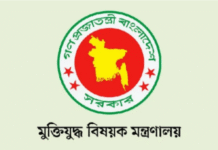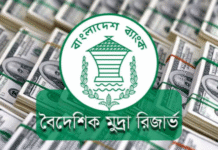She says govt wants to work closely with private sector

Reassuring her government’s determination to provide all necessary cooperation to the Public-Private-Partnership (PPP) initiatives in the country, Prime Minister Sheikh Hasina on Friday said a process is underway to enact the PPP law with provisions for selecting private partners transparently for PPP projects.
“This (PPP) is a new beginning, a new form of partnership, whereby the government stands ready to share the risks along with the private sector, especially those who will be able to manage best. For this, we’re ready to commit all necessary material and human resources,” she said.
The prime minister was addressing the inaugural session of the two-day ‘PPP Global Investors’ Forum: Bangladesh 2012’ held at a city hotel. Later, she inaugurated the forum touching a crystal ball.
Hasina said, “A process is underway to enact the PPP Law with provisions for transparent process of selection of private partners for the implementation of PPP projects.”
She added that the Finance Minister as the Chairman of the Cabinet Committee on Economic Affairs will guide and oversee the PPP programme.
Jointly organised by the PPP Office and Board of Investment (BoI), Finance Minister AMA Muhith and Foreign Minister Dipu Moni spoke on the occasion as special guests while Principal Secretary to the Prime Minister Sheikh Md Wahid-uz-Zaman delivered the address of welcome.
Executive Chairman of the Board of Investment (BoI) Dr Syed A Samad gave the concluding speech while Japanese Ambassador to Bangladesh Shiro Shadoshima, World Bank country director Ellen Goldstein, ADB country director M Teresa Kho, IDB Bangladesh representative Iqbal Karim and former FBCCI president AK Azad, among others, spoke on the occasion.
CEO of the PPP office Syed AH Uddin made a video presentation and introduction of the PPP programme.
The prime minister said the government wants to work closely with the private sector to render better services to the public through utmost utilisation of their capabilities and thus speed up the country’s advancement.
She mentioned that the Ministry of Finance and the PPP office have already developed a comprehensive set of documents, including operational manuals and instructions, and financing guidelines for facilitating PPP project implementation based on global best practices.
Noting that one of the key conditions for achieving goal of becoming a middle-income country by 2021 is to boost investments in infrastructure from only 2 percent to 6 percent of GDP, Hasina said her government has identified and prioritised PPP as one of the key initiatives to meet this investment gap. “PPP will enable us to deliver public services at an affordable price, reducing the pressure on the national budget.”
She said the additional fund then can be allocated for the development of other sectors of the economy, especially in the social sectors such as health and education. “Our Sixth Five-Year Plan during FY2011-FY2015 targets 75 percent of the investment to come through partnerships with the private sector.”
Hasina said the development partners have been working in partnership with the PPP Office in ensuring the establishment of a robust, transparent and comprehensive framework for accelerating the implementation of PPP projects in Bangladesh.
She said in her previous term from 1996 to 2001, the two most successful PPP projects in Bangladesh — Meghnaghat 450 MW Power Plant and Haripur 360 MW Power plants — were contracted.
The premier said through these two projects Bangladesh had been able to secure the lowest electricity tariff in the region, and these projects received ‘Euro Money’ award as examples of successful project finance transactions.
“We now want to extend our past success in the power sector to other sectors such as transport, water supply, tourism, housing and urban development, and even social sectors,” the Prime Minister added.
Hasina said the excellent Human Development Index that the country achieved similar to that of middle-income countries is attributed to her government’s proactive policies, economic dynamism, remittance of workers from abroad, growth in exports of RMG and other products and resilience of the people of Bangladesh.
“All these factors certainly contributed to our growth. But let me tell you that none of this happened by default. Rather, we earned all by design,” she claimed.
Hasina said they would seriously consider all the recommendations of this Forum to fine tune the PPP programme further.
Citing widespread recognition by the esteemed commentators about the prospects of Bangladesh to be the next engine of growth in the region, Hasina said Goldman Sachs has placed Bangladesh on its list of ‘Next Eleven’ after ‘BRIC’. J.P. Morgan set the country in its ‘Frontier Five’. The World Bank has ranked Bangladesh as the 20th country for Investor Protection ahead of India, China and Vietnam.
She also highlighted government’s various achievements like increase of per capita income to 850 US dollar this year from 630 dollar in 2008, achieving 6.5percent GDP growth rate despite global economic meltdown, the country is nearing the goals of Vision 2021 in many areas, including digitisation and poverty alleviation and over 50 million people have been elevated to middle-income group from low-income status.









